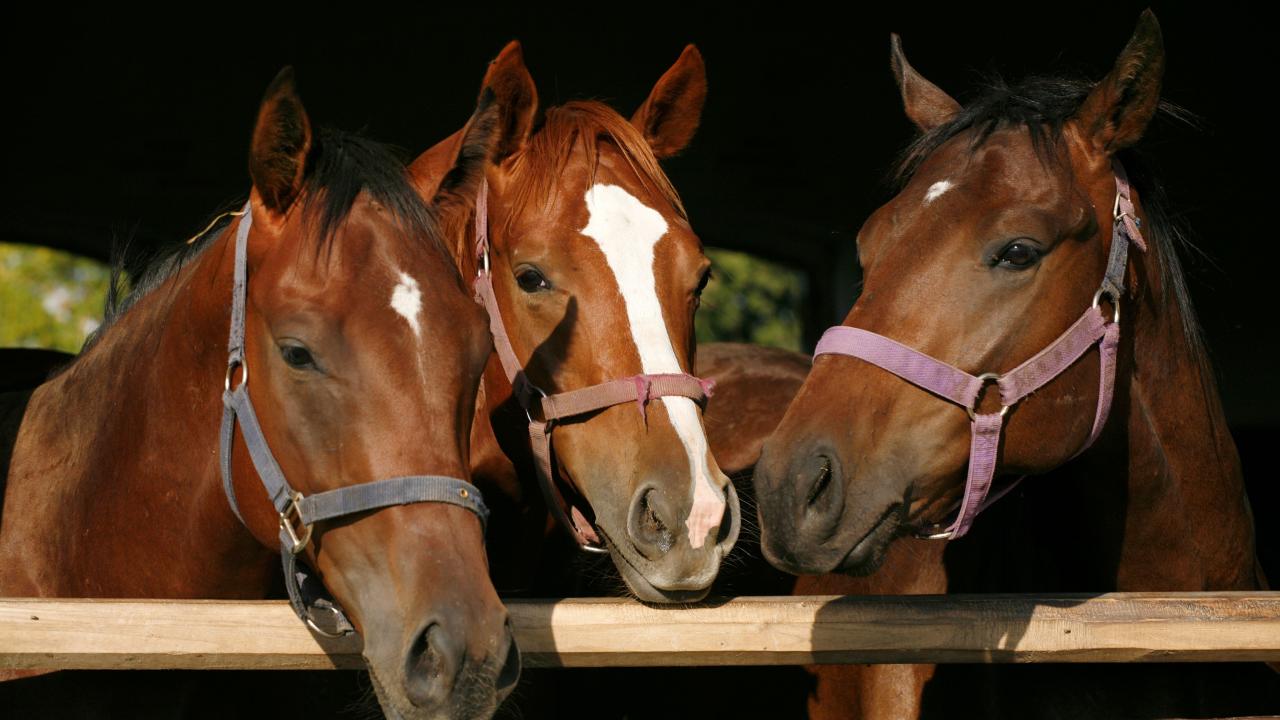
Variants associated with equine familial isolated hypoparathyroidism (EFIH) and fragile foal syndrome (FFS) are at low frequency in the US Thoroughbred population and are not recent mutations
The study led by Dr. Carrie Finno, Gregory L. Ferraro Endowed Director of the UC Davis Center for Equine Health (CEH), and Dr. Rebecca Bellone, Director of the Veterinary Genetics Laboratory (VGL), determined that the allele frequencies for equine familial isolated hypoparathyroidism (EFIH) and fragile foal syndrome (FFS) were low in a population of Thoroughbred horses. The researchers also showed that the EFIH and FFS variants are not recent mutations, having been identified in horses born in 1992 and 1993, respectively, and their frequency in the Thoroughbred population has not changed over the years evaluated.
The goal of the study was to estimate the frequency of the EFIH and FFS variants in the US Thoroughbred population between the years of 1988 and 2019, and determine if these mutations were recent or increasing in frequency over time. With the Jockey Club’s express permission, hair and serum samples from 56 horses born during each of the years studied were randomly selected from the samples banked at the VGL: 728 samples from horses born in 1988–2000 and 1,059 samples from horses born in 2001–2019, totaling over 1,780 samples. Among the studied population, 28 horses were carriers for EFIH and 25 were carriers for FFS. None of the horses carried variants for both diseases, and no horses had two copies of EFIH or FFS.
“Given the long-standing relationship of the UC Davis VGL and the US Jockey Club, we were able to ask important questions about two of the inherited disorders for which causal variants have been identified in the Thoroughbred and make evidence-based recommendations on genetic testing for this breed.” Noted Dr. Bellone
While the study confirmed the number of horses carrying the EFIH or FFS variants to be low in the US Thoroughbred population, the carrier frequency can be used to estimate that out of 20,000 foals born annually 658 would be carriers for EFIH or FFS. Therefore, genetic testing can be utilized to ensure mating of carriers is avoided and to continue monitoring for changes in EFIH and FFS allele frequencies over time.
This study was performed as part of the UC Davis School of Veterinary Medicine’s Students Training in Advanced Research (STAR) Program. To hear more about that experience, please see the “Meet the Scientist” side bar with third year UC Davis Veterinary Student Megan Elcombe.
The full publication can be found at https://doi.org/10.1111/evj.13883
